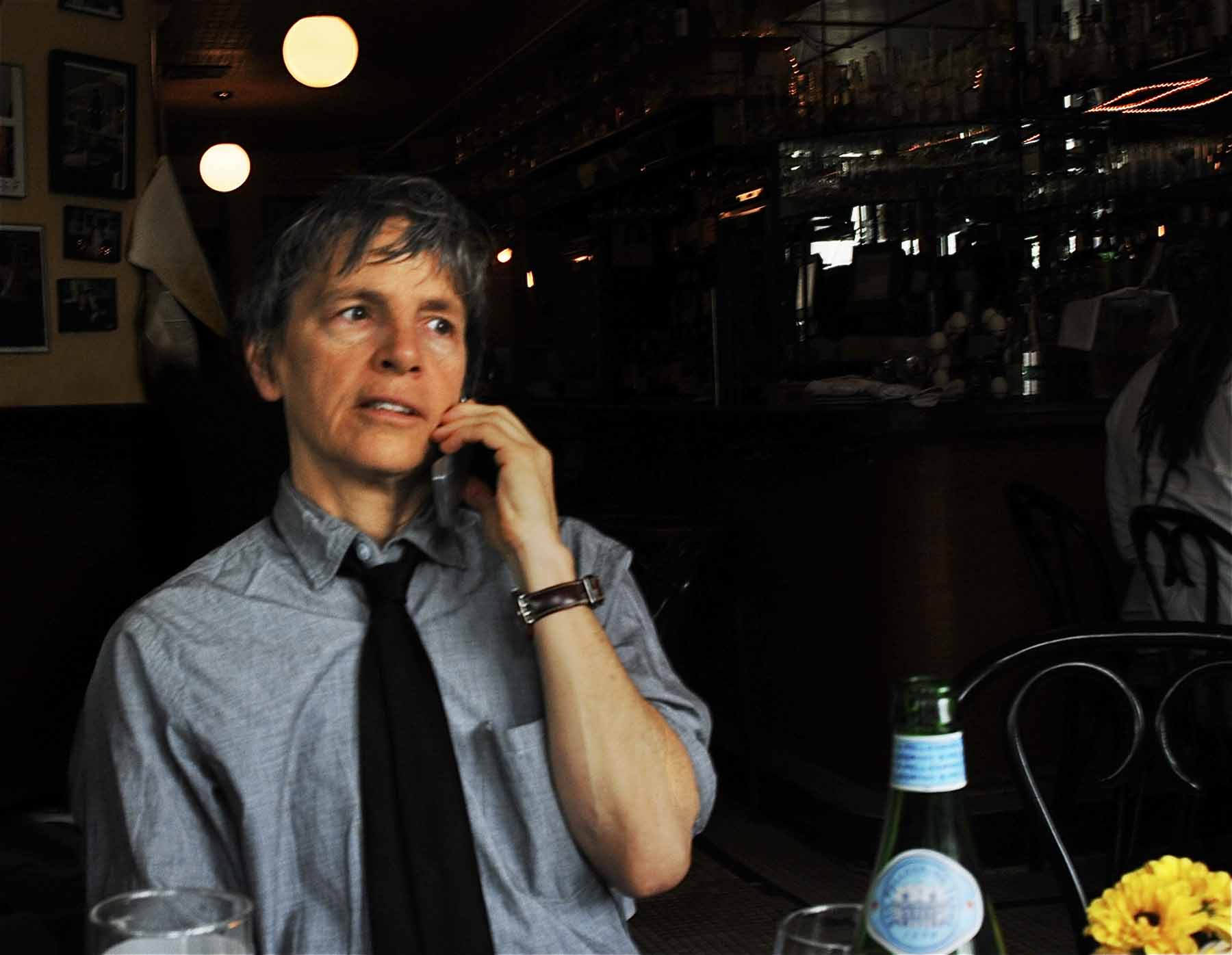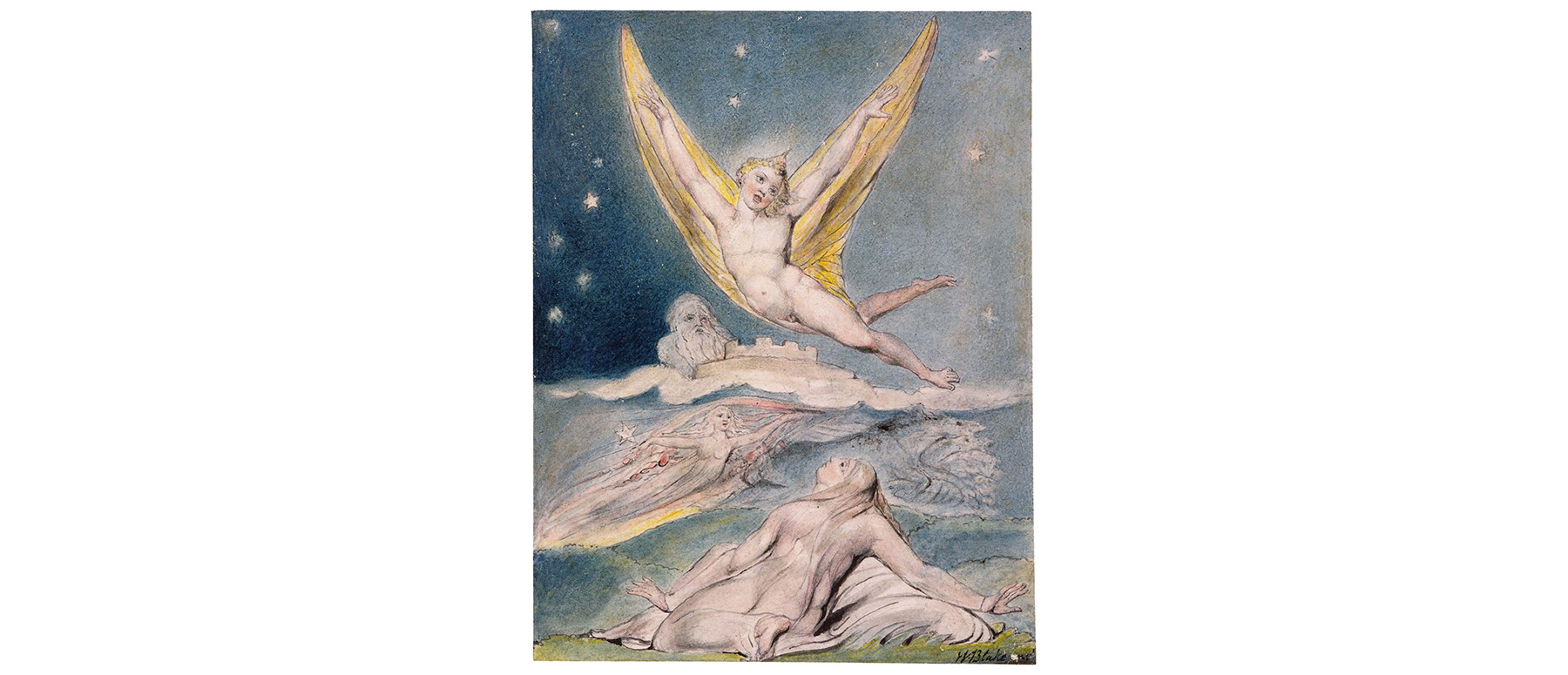Eileen Myles moves around a lot. We met for an hour because they had more places to be: a reading by some of their students and then their own reading in Ridgewood. I bungled my public transit route and was late to the interview. I received a text saying “What if we meet at 3:45. I will nap. See you then.” The ease through which they move around the city makes it clear that Myles is no recent transplant.
Eileen Myles seems to be in a perpetual state of creation. Their photography show at Bridget Donahue gallery, a collection of curated photos from their Instagram, accompanied the release of their latest book of poetry, Evolution (Grove Press, 2018). They just screened The Trip, a short film they made with filmmaker David Fenster inspired by Jack Kerouac’s spoken score of Robert Frank’s 1958 Pull My Daisy, and Louis Malle’s 1981 My Dinner With Andre, which features Myles and their handmade puppets. The week of this interview they were named a MacDowell fellow, and are relocating out of their signature East Village apartment to a cabin in New Hampshire.
But for now, we meet in the East Village at one of their usual spots, Café Mogador. They tell me they need coffee today, but don’t show it. They assure me that this is not an interview, this is just “a conversation.” The way a memoir is a novel, and an Instagram post is a poem.
Sallie Fullerton: What I first wanted to touch on was your introduction to Evolution, the part where you talk about Shakers and this idea of a “generative scheme” in contrast to a reproduction-oriented society, this idea of keeping something alive outside of the conventional ways of doing so.
Eileen Myles: I feel like I keep having encounters with this thing, and some of it does have to do with things that are related to reproduction, but in a particular way. I was doing my taxes recently. I have an accountant, and so I have this relationship with this guy, and so we always talk about the money part of things, and I was asking him “if I have this money, what should I do with this? Where should I put it?” He said, “ you make a trust. There are two kinds, revocable and irrevocable trust” and I said “so what’s the difference?” and he said well irrevocable is your blood line, it’s the money you want your family to get when you’re gone and revocable trust is money you put someplace but then you take it back.” and I was like “but I don’t have a bloodline.” And I became very excited about that. It just is that family is not important to me. I’ve been in lots of relationships and I have friends, ex-lovers, family members and all that but I am really confronting the fact that family is no kind of organizing principle in my life. And yet, there was this term, “bloodline” and I thought, ‘so what does that mean?” So now it’s become this silly idea. It’s generative.
Like, I was doing a makeup class with my students and we were in this restaurant and I was attempting to pick up the check, and I was like ‘no, but you’re my bloodline!” I tried to explain to them what I was talking about but I think they were a little freaked out by it. Money has all this symbolic power in our culture and it’s a way of expressing futurity, and I suddenly thought that however I choose to invest that becomes an iteration of my bloodline in this completely other way. The most expensive thing in my life right now is therapy, I have a really good therapist, but it’s about getting this right, this existence, not so my kids won’t be fucked up or that I’ll have a good relationship. It’s actually so that I’ll know what I’m doing and where I am.
SF: So you’re talking about the productive versus the reproductive. I think it can be difficult to look outside of reproduction as a means of sustaining something.
EM: Well I think part of being female, whether you’re queer or not, if you start with the female body, you realize that culturally you’re only of value as a duplicating machine. Some part of that seeps into you, whether you like it or not, because you’re immediately “other” in a way.
SF: Right, and it often seems about what you can give.
EM: Yeah! So suddenly it seems so awesome that my “bloodline” is circulating back into me and back into my students and my work and my dog. You know, the other part of my bloodline is my dog.
SF: Yes, I was going to ask about the dog.
EM: It’s also the people that I move to where the dog is to care for her. The dog’s care is my bloodline. [laughs] Once you give any money to animals suddenly your mailbox starts to be full with donkeys, horses and cats. It’s started to be a ritual that I enjoy. It’s very old-fashioned; I’ll sit down with my checkbook and write checks to animals. Like this one, I feel like I made it up, it’s about legal aid for pets, lawyering them up! But all of it feels like expanding one’s vision and thinking beyond progeny.
SF: Do you feel like dogs are your family or occupy a similar place in your life?
EM: Well, one of the biggest things is that we don’t share a language. It’s awesome to have a relationship that isn’t based on language, especially for those of us for whom language is so important that you can kind of forget that you have other things going on. The relationship is so intuitive and sensitive, rich and mammalian. Obviously every dog is different, just like every book is different and every relationship is different. It winds up being something that limits and expands in its own unique way.
[A dog] knows your smell. It’s intense. I think we probably have that relationship with our friends, we definitely have it with our lovers, and your family kind of accepts you on that level, but with animals it’s purely that. In a way, it’s the most intimate relationship.
SF: I see your name on a lot of books. I work at a bookstore now, and there are Eileen Myles blurbs throughout. You blurb a lot of authors.
EM: [laughs] Too many?
SF: Not too many, no. But I know blurbs often happen through connections outside of the book.
EM: Yeah, they’re usually about friendships. It almost always is. It’s usually a friendship with the press, or a friendship with the writer.
SF: It’s a favor, maybe.
EM: Yeah, yeah, and people have helped me lots. I just did one for Rachel Monroe who wrote a book called Savage Appetite (Simon & Schuster, 2019), and it’s about women who are into murder. It’s interesting because what I got is that the whole industry of CSI and cop shows, women are watching it more than anybody. I thought ‘all this stuff about the dead girl, I wonder who the consumer is for that?’ And so that kind of changes it for me. I thought, ‘huh, so maybe it’s not such a bad thing.’ Even as just a way of managing danger or what’s out there. I don’t know, I just thought if it wasn’t all just dudes reading it, maybe it means something.
SF: I have also noticed a network of queer poets who write each other’s blurbs quite a bit.
EM: Oh, yeah. And sometimes it really helps. I think that Andrea Lawlor’s book, Paul Takes The Form of a Mortal Girl (Vintage Books, 2017), is fantastic. And I think the combination of us who blurbed it is what pushed it over to the top.
SF: I think it definitely did. It makes me so happy. It got picked up by Vintage [Books] through you and people like Maggie Nelson’s blurbs.
EM: Yeah, it makes it all worth it. And Andrea and Jordy [Rosenberg] and Maggie all go way back. All these people are related.
SF: I’m reminded in what you’re saying about the concept of “chosen families” which I think can become difficult to differentiate from “networking” – now, especially in New York.
EM: Well, that sort of excludes some people and pulls in other people. I know communities are temporary but it [the term “chosen family”] still has this gated humanity feel. It can exclude the accidental and the temporary. I don’t want to say New York is my “chosen family,” but New York is the supplier of something we’re talking about in a way. Sometimes I feel like I’m purposely spending time here to get a lot of it so that I can go be alone.
SF: Like Vitamin D.
EM: Yeah, like right now it’s Gala season. Every institution that needs money is having a big party and then I’m a “somebody” now so I’ve gotta be at the party and we’re all hugging and it’s like a like a big grope, like an orgy of friendship.
SF: And did it always feel this way in New York?
EM: No! Everything felt that way earlier but now it’s something that is more staged. Even the phenomena of meeting someone for coffee seemed to start about ten or twenty years into my life in New York. It used to be that you’d just go and everybody was there.
SF: When I read about people writing about your work it’s usually about how intensely personal it is, even though you technically write novels and not memoirs. It seems as though people, regardless of how well they know you, have a sense that they really know you, feel like they are almost in your world. I’m wondering how this affects the way that you relate to your own work.
EM: Well I think of the majority of my work as being relatively quiet. Nobody talks about how the pieces get fit together, which is the thing I’m really interested in. I’m interested in time travel. It’s sort of like how the present attaches to other associative times, how you can make something that is like a simulacra of time travel. I was going to say memory, but it isn’t exactly that. It’s more associative. It’s like writing a poem in prose. But there’s not much conversation about that because now I’m doing this other thing.
I just think that a poem is so many different things. Once you get a large form going and you know that it’s a place or a state, it starts to become interesting to see what it can hold that strays from the normal definition of what a poem is. You can simply put down a wish. It’s sort of like to what extent is this an epitaph? Are you writing in the same time-code in the whole book or are some pieces very slow. The space of the page is just so interesting. It’s just pieces of paper.
SF: You’ve been read and talked about so many times and it’s almost like a game of telephone. I’m imagining how this process makes it so you get further and further away from what you’re actually trying to do and more about how others are perceiving or “reading” you.
EM: Well it’s like a copy of a copy of a copy. Often when somebody says something, that becomes the thing people say, they repeat it.
SF: “Badass lesbian poet?”
EM: [laughs] Yes, exactly. Thank you! That’s my least favorite.


